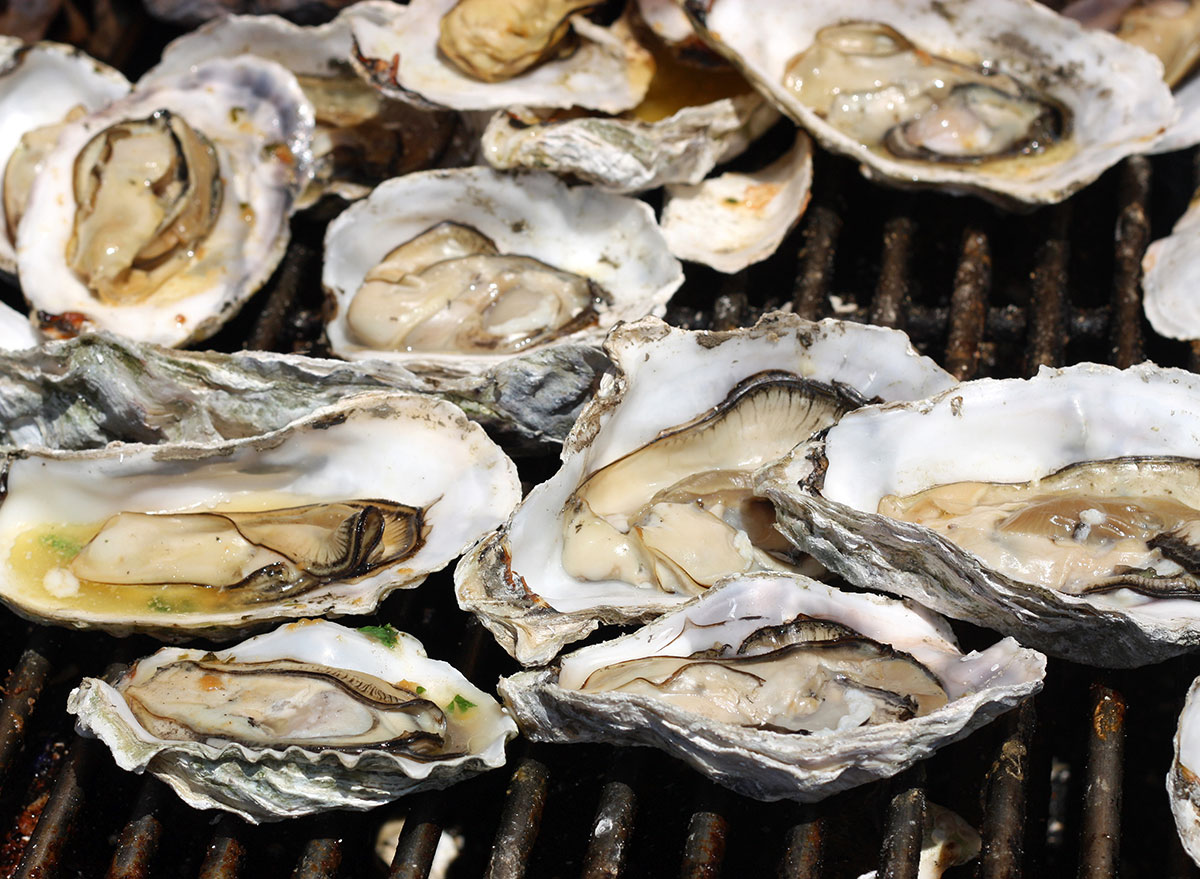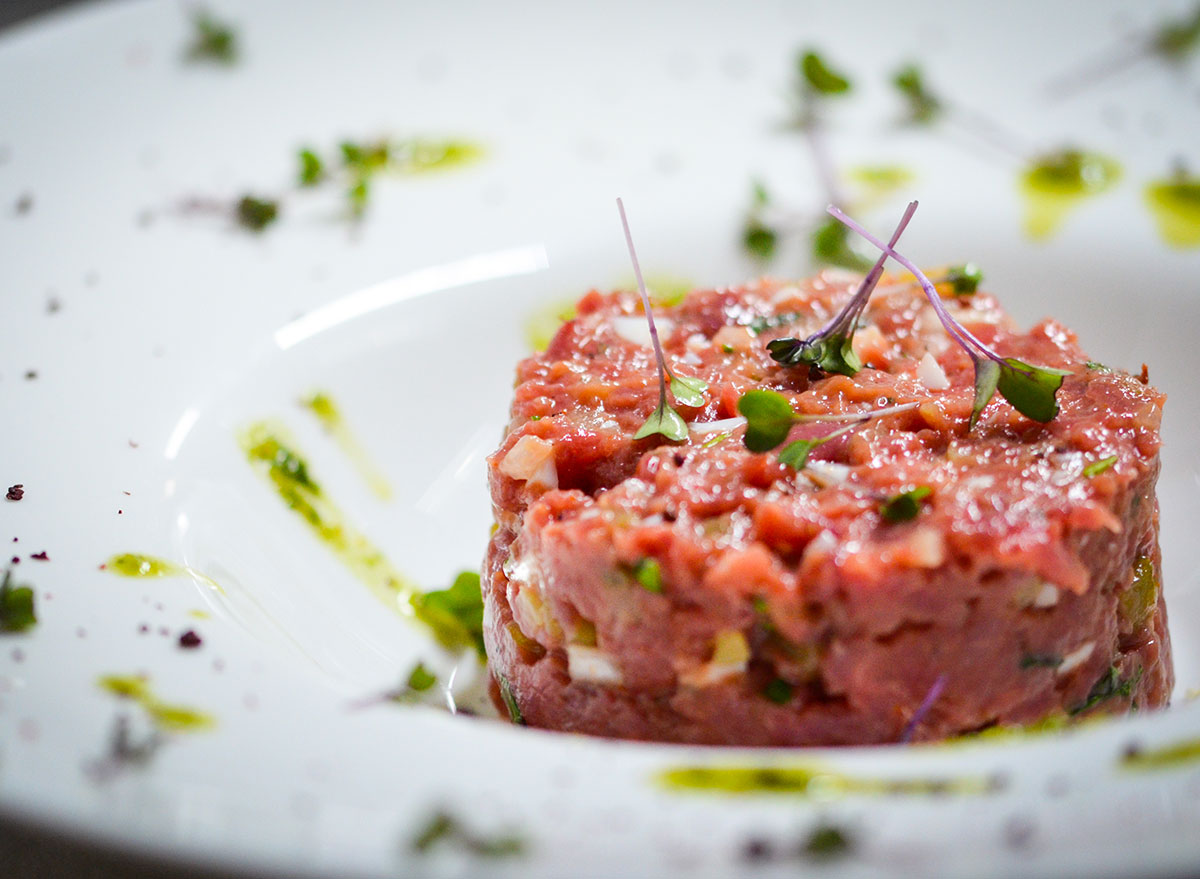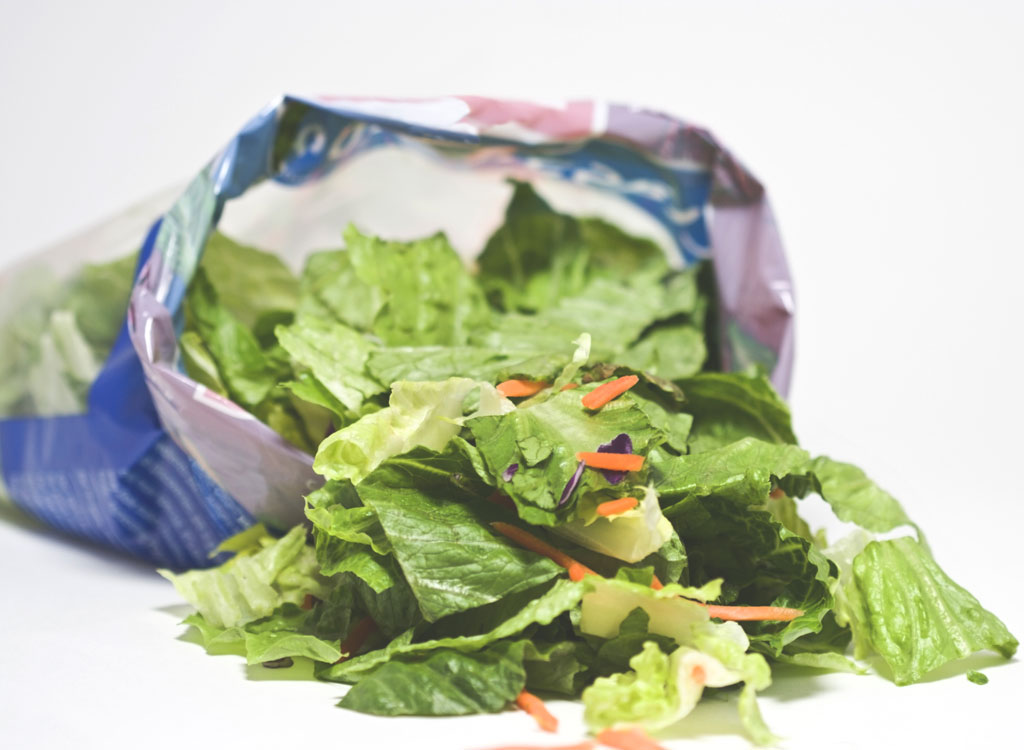Popular Foods That Can Make You Sick, According to Science

Whether you follow a vegan diet, prefer paleo foods, or are a keto devotee, finding the right mix of foods to suit your health and wellness goals can change your life. However, many foods that seem healthy on the outside are anything but.
In fact, some of the popular foods you’re eating every day could make you sick, from causing unanticipated digestive problems to contributing to chronic disease. Before you jeopardize your wellbeing, read on to discover which popular foods could be contributing to serious health issues. And if you’re ready to revamp your meal plan, start with The 7 Healthiest Foods to Eat Right Now.
Canola Oil

Canola oil, commonly used in the preparation of everything from French fries to baked goods, is a sneaky contributor to ill health, experts say.
Canola oil is “high in omega-6 fats, which are inflammatory,” explains functional nutritionist Monica Ruiz-Noriega, PhD, founder of Vigeo Nutrition. “When consumption of omega-6 fats is more than three times higher than that of omega-3s, this produces a state of chronic inflammation that contributes to the development of many chronic diseases, such as diabetes 2 diabetes and cardiovascular disease.” Canola, also referred to as “vegetable oil” in processed foods, along with the prevalence of soybean oil, are main contributors to the increase in omega-6 oils in our diets.
Get more healthy tips delivered straight to your inbox by signing up for our newsletter!
Oysters

While shellfish can be a part of a healthy diet, oysters can cause serious health issues, especially if they’re eaten raw.
“Infections by vibrio vulnificus bacterium, which are most likely to infect oysters, lead to symptoms like diarrhea, vomiting, skin reactions, and worse, septicemia—a serious blood infection that cause death,” explains Davina Ramkissoon, MSc., wellbeing director with Zevo Health. And if you want to make healthier seafood choices, check out Every Popular Fish—Ranked for Nutritional Benefits!
Protein-Heavy Meal Replacement Bars

If you’re eating protein-heavy meal replacement bars, you could be putting your health in jeopardy. Many traditional protein bars “are unfortunately still high in fat and sugar,” says Trista Best, RD, a registered dietician at Balance One Supplements.
Additionally, consuming excessive amounts of protein could have severe implications for your kidney health. According to a 2019 study published in the Journal of Renal Nutrition, among a group of 1,797 Iranian adults, those eating a low-carbohydrate, high-protein diet were significantly more likely to develop chronic kidney disease than study subjects on a traditional diet. And if you want to make sure you’re making a smart meal replacement choice, check out the 15 Best Healthy & Low-Sugar Protein Bars in 2020, According to Dietitians.
Steak Tartare

Steak tartare may a staple at many fine dining establishments, but its raw ingredients make it a major risk to your health. Made from raw minced beef and frequently topped with a raw egg yolk, the dish can put anyone who consumes it at risk for serious bacterial infections.
According to a 2013 report published in Morbidity and Mortality Weekly Report (MMWR), consumption of raw beef has been associated with major foodborne illness outbreaks, including E. coli poisoning. In a 2000 study of pregnant women infected with toxoplasma gondii—a parasite that can cause illness and death—up to 63 percent of infections were attributed to the consumption of undercooked or cured meat.
Pre-Washed Greens

Grabbing a bagged salad from the shelf at your local supermarket may be convenient, but if those greens aren’t used in a timely manner, you could be setting yourself up for serious illness. According to a 2016 study published in Applied and Environmental Microbiology, juices released from salad leaves can contribute to the proliferation of salmonella enterica, a bacterium that can cause fever, diarrhea, or even death. In fact, according to the study’s authors, over a five-day period, even a small amount of liquid within a bagged salad contributed to a 280-fold increase in salmonella within the bag as compared to a control bag. The lettuce part of the salad isn’t the only thing that can make you sick. These 20 Worst Salad Dressings That Should Never Be In Your Shopping Cart are high in ingredients that can make you sick in terms of weight gain and inflammation by filling you up with unhealthy oils and sugar.








